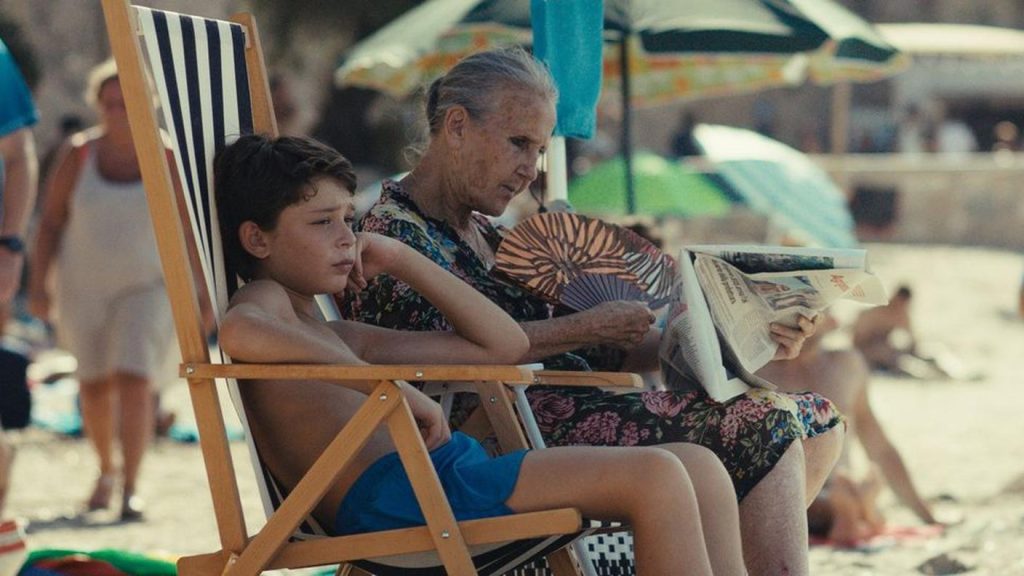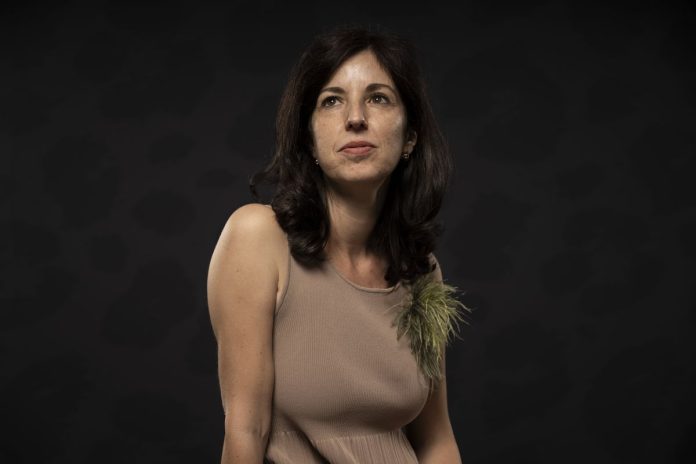Best known for her work as a casting director, Italian filmmaker Margherita Spampinato made waves at this year’s Locarno Film Festival, walking away with two major prizes: the CINÉ+ Special Jury Prize and the Pardo for Best Performance, awarded to the magnificent Aurora Quattrocchi in the Cineasti del Presente competition.
The achievement is all the more striking when we remember that Sweetheart (Gioia Mia) marks her feature-length directorial debut — a bold yet deeply mature leap that didn’t come out of nowhere. Spampinato had already signed two short films that hinted at her sensitive gaze on memory, identity, and the intimate worlds of childhood and old age: Tommasina (2009), a moving portrait of a nonagenarian with Alzheimer’s who insists on living as though she were still eighteen, and Segreti (2011), a delicate immersion into the secret universe of a nine-year-old girl, where play and mystery blur with reality.
The film follows Nico (Marco Fiore), a rebellious city kid immersed in the fast-paced world of technology, who is forced to spend the summer in Sicily under the care of Gela (Aurora Quattrocchi) — an elderly, single, deeply religious aunt who lives alone in an ancient house filled with silence, legends, and rituals. A house with no Wi-Fi, no screens, no escape.
The arrangement is born out of necessity: Nico’s usual babysitter is no longer available, and the family sees in Gela a solution for both childcare and his transition into adolescence. What begins as an unwanted exile slowly turns into a transformative encounter for both Nico and Gela. Between generational conflicts, cultural clashes, and stubborn resistance, a profound bond emerges between two seemingly opposite beings — brought together, unexpectedly, by the unspoken ache of impossible loves and lingering longings.
“It’s a completely autobiographical film,” Spampinato told C7nema, embracing the timelessness of the themes she explores. “It’s as much about my own childhood as it is about my son’s, who is ten. It’s inspired equally by the reality of today and by the reality of my childhood.”
Aside from Aurora Quattrocchi’s commanding presence as Gela, the rest of the cast was selected through an extensive casting process. In Gela, Spampinato delves into the traces of a love left unfulfilled due to the pressures of its time — an idea born from her own memories of visiting women in Sicily, “my grandmother’s cousins,” who, as she later understood, were couples unable to live their love openly. “I was a child, but I could see it — because children perceive everything. They were couples, but they couldn’t live their love in the daylight. And when I entered that world, I became the light of their eyes, a reflection of their unfulfilled desire for motherhood. That always fascinated me. And, in fact, the boy in the film, when he enters this world, immediately senses what cannot be said in words but is evident to all. He feels it, he discovers it.”

Equally compelling to Spampinato was Nico’s love for his babysitter — a thread of vital importance in the film. She notes how underestimated the heartbreak of children separated from their caretakers often is: “These are complex loves,” she says. “When a ten-year-old suddenly loses the person who raised him, it feels like real trauma. At the same time, it couldn’t be otherwise: at an age when a boy is entering puberty, and a young girl shares his daily life, these ambiguous situations are, cinematically, very interesting. It also reflects today’s society, where babysitters often become key figures of reference, because parents don’t have time. Nowadays, time itself is a true luxury.”
As Nico processes the loss of someone close, new friendships emerge. Among them is Rosa (Martina Ziami), the granddaughter of one of Gela’s neighbors, who invites him to play in the courtyard — and perhaps to explore some local houses where, according to her, ghosts dwell.
For Spampinato, the kiss is a turning point — a moment of moving past grief. “It shows the beginning of adolescence,” she says. “That kiss felt really beautiful to me, like a gentle goodbye to childhood.”
The children’s ghost-hunting stories also highlight the balance between superstition and reality. Drawing inspiration from a real-life incident in Spampinato’s apartment building — where unexplained noises blamed on spirits were later revealed to come from a 102-year-old woman using a walker — the director infuses both humor and emotional depth to the story. “Even when the truth is revealed, the older women prefer to keep believing in spirits. They’ll hear another sound, and the superstitions start all over again. They don’t want the mystery solved. I liked the idea that it’s the child who uncovers the truth, who understands what lies behind the fear.”
Now at work on a new project, Spampinato remains tight-lipped about the plot but reveals that, this time, neither children nor the elderly will take center stage.
Sweetheart has already secured distribution in Brazil (Pandora Filmes), the Benelux (Arti Film), Taiwan (Av-Jet International Media Co.), the South Cone (Zeta Filmes), and Israel (Lev Cinemas LTD).


